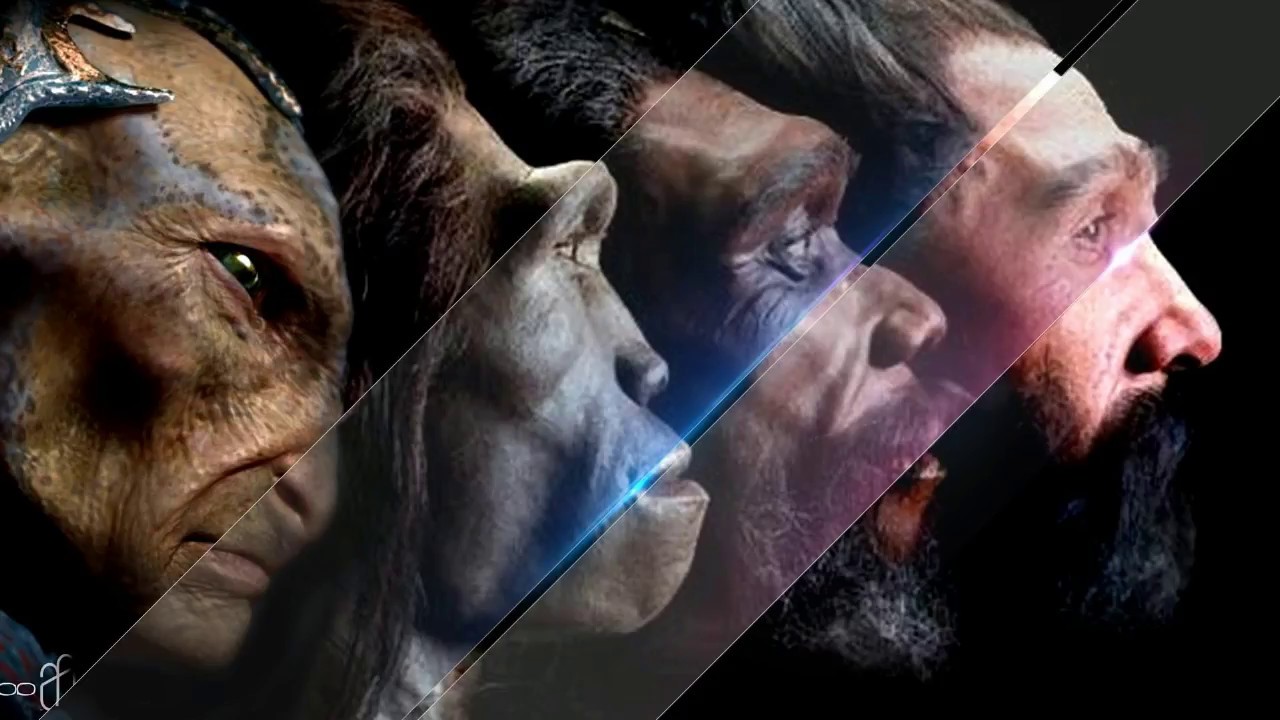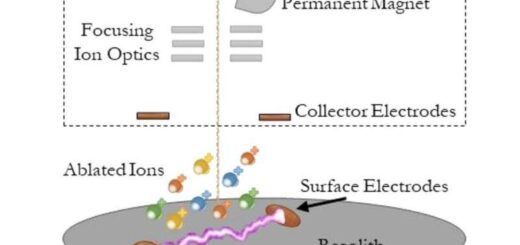A U.S. ecologist says humans did not evolve alongside other life on Earth.
In a new book, HUMANS ARE NOT FROM EARTH: A SCIENTIFIC EVALUATION OF THE EVIDENCE, Dr Ellis Silver says aliens put humans our planet as recently as tens of thousands of years ago.
He suggests the Earth might be a prison planet, since humans seem to be a naturally violent species and are here until we learn to behave ourselves.
In his book, Dr Ellis Silver points to a number of physiological features to make his case for why humans did not evolve alongside other life on Earth.

Dr Silver says that while the planet meets humans’ needs for the most part, it does not perhaps serve the species’ interests as well as the aliens who dropped us off imagined.
In his book, the ecologist writes the human race has defects that mark it of being ‘not of this world’.
‘Mankind is supposedly the most highly developed species on the planet, yet is surprisingly unsuited and ill-equipped for Earth’s environment: harmed by sunlight, a strong dislike for naturally occurring foods, ridiculously high rates of chronic disease, and more.
He also says that it is strange that babies’ heads are so large and make it difficult for women to give birth, which can result in fatalities of the mother and infant. No other native species on this planet has this problem, he says.
Dr Ellis says that humans might suffer from bad backs (illustrated) because we evolved on a world with lower gravity such as Mars.
He also believes humans are not designed to be as exposed to the sun as they are on Earth, as they cannot sunbathe for more than a week or two – unlike a lizard – and cannot be exposed to the sun for a few hours without getting sunburned.
Seventeen factors which suggest we are not from Earth
How did we get here?
When did we get here?
What is our home planet like?
The most likely stars that our home planet orbits
If the aliens are out there why can’t we detect them? Are we the aliens?
In this fascinating book Dr Ellis Silver provides answers to all of these questions, based on current evidence and thinking in the scientific community and elsewhere.
“The Earth approximately meets our needs as a species, but perhaps not as strongly as whoever brought us here initially thought,” Silver said in an interview with Yahoo news.
“I believe that many of our problems stem from the simple fact that our internal body clocks have evolved to expect a 25 hour day (this has been proven by sleep researchers), but the Earth’s day is only 24 hours. This is not a modern condition – the same factors can be traced all the way back through mankind’s history on Earth.”
Silver does not suggest one answer – but a possibility that early pre-humans such as Homo erectus were crossbred with another species. He also suggests several possible origins, including Alpha Centauri.
“Mankind is supposedly the most highly developed species on the planet, yet is surprisingly unsuited and ill-equipped for Earth’s environment: harmed by sunlight, a strong dislike for naturally occurring (raw) foods, ridiculously high rates of chronic disease, and more. Plus there’s a prevailing feeling among many people that they don’t belong here or that something “just isn’t right.”
“This suggests (to me at least) that mankind may have evolved on a different planet, and we may have been brought here as a highly developed species.
“One reason for this, discussed in the book, is that the Earth might be a prison planet – since we seem to be a naturally violent species – and we’re here until we learn to behave ourselves.”
The theory of evolution claims humans were developed from apelike animals or chimpanzees but these animals still exist in their ancient form and do not write or construct buildings. No chimpanzee has graduated from kindergarten.
Paleoanthropology is the scientific study of human evolution based on evidence of fossilized bones and partial skulls that will not fill your average table.
A great is based on the assumption we gradually gained brain power, walked upright, and learned to reason and believe in a creator power or God. Animals live by the rule of fhe jungle and most humans are peaceful.
Paleontologists for some reason have ignored the possibility of intervention by extraterrestrials.
They admit thousands even millions of mutations would be required to develop cells from the primordial soup to fish, primitive land creatures, then apes to hominids or primitive man.
We know now that the DNA molecule is probably the most efficient information storage system in the entire universe.
The immensity of complex, coded and precisely sequenced information written on the DNA is amazing.
The evidence speaks of intelligent, information-bearing design. Complex DNA coding would have been necessary for even the hypothetical first ‘so-called’ simple cell(s).
Our cells are more complex than a city
A single cell is unbelievably complex being roughly equivalent to New York City in a bubble or the outer membrane of the cell. As we move in closer to examine the cell we see the huge buildings, roads, subways, bridges, auto traffic that represent the various parts of the cell.
As we move closer inside the various buildings we find a network of electrical wiring, heating and air conditioning systems, elevators carrying people.
Inside the offices are millions of computers and wiring chips. Now you have an idea of the complexity of a single cell that can duplicate itself in minutes.
Even Francis Crick the co-founder and Nobel Prize Winner stated, ‘An honest man, armed with all the knowledge available to us now, could only state that in some sense, the origin of life appears at the moment to be almost a miracle, so many are the conditions which would have had to have been satisfied to get it going.’
Crick reasoned that life could not have evolved from non-living chemicals under any conceivable earth conditions. He felt life did not originate on earth, and suggests a theory called panspermia. That the seeds of life are all through the universe.
This concept basically infers that life, DNA, virus, bacteria, bombarded from space aboard meteorites and comets.
Crick proposed, in a book called “Life Itself,” that some form of primordial life was shipped to the earth billions of years ago in spaceships — by supposedly ‘more evolved’ (therefore advanced) alien beings.
This concept basically infers that life, DNA, virus, bacteria, bombarded Earth from space aboard meteorites and comets.
A balloon that recently returned from a high-altitude flight this year was covered in microscopic life forms which seemed not to be of this world – and reignited the debate over whether life on Earth actually began here, or somewhere else.
This year, other scientists have argued that life originated on Mars, due to a mineral found in Martian meteorites, thought to be crucial to the genesis of life.
Another experiment showed that amino acids could have arrived in impacts with comets – which suggest life might be widespread in the solar system.
An ancient civilization from Mars might have traveled to Earth.
Earth — Mars
Dr Ellis Silver argues that humans may well not be from Earth – and may have arrived separately perhaps aboard a space ship.
Silver, an environmentalist who is currently working with the effort to clean plastic debris from the Pacific, says his book aims to provoke debate – and is based on scientific work on the difference between humans and other animals.
“The Earth approximately meets our needs as a species, but perhaps not as strongly as whoever brought us here initially thought.”
“Lizards can sunbathe for as long as they like. We can just about get away with it for a week or two. But day after day in the sun forget it. You might as well just lie down on the freeway and wait for a bus to hit you.”
We are dazzled by the sun, which is also odd, says Silver – most animals are not.
Silver also points out to the “extra” 223 genes in human beings, which are not found in any other species, and to the lack of a fossil “missing links”.
Scientists: Humans Have 145 ‘Alien’ Genes — Some DNA is NOT From Our Ancestors
The development of blonde hair and blue eyes in certain humans over the last ten years is a mystery in itself.
Silver also claims that the human race has defects that mark us out as being possibly “not of this world”.We lived comfortably on another planet believed to have pyramids.
“We are all chronically ill,” says Silver.
“Indeed, if you can find a single person who is 100% fit and healthy and not suffering from some (perhaps hidden or unstated) condition or disorder (there’s an extensive list in the book) I would be extremely surprised – I have not been able to find anyone.”
The sun hurts our eyes implying we originally came from a planet with a dimmer son.
“I believe that many of our problems stem from the simple fact that our internal body clocks have evolved to expect a 25 hour day (this has been proven by sleep researchers), but the Earth’s day is only 24 hours. This is not a modern condition – the same factors can be traced all the way back through mankind’s history on Earth.”
Silver does not suggest one answer – but a possibility that early pre-humans such as Homo erectus were crossbred with another species.
Mankind has spent tremendous effort building pyramids all over the world at great cost. Mars, Ceres, our Moon all have large pyramids indicate they have value to extraterrestrials.
Mysterious rays of light radiate from pyramids around the world.
“Mankind is supposedly the most highly developed species on the planet, yet is surprisingly unsuited and ill-equipped for Earth’s environment.
Plus there’s a prevailing feeling among many people that they don’t belong here or that something “just isn’t right“.
“This suggests (to me at least) that mankind may have evolved on a different planet, and we may have been brought here as a highly developed species. One reason for this, discussed in the book, is that the Earth might be a prison planet – since we seem to be a naturally violent species – and we’re here until we learn to behave ourselves.”
“There is probably truth to the report that they find curious stuff in the atmosphere,” Chris McKay, an astrobiologist at NASA told SPACE.com in an interview.
“The jump to the conclusion that it is alien life is a big jump and would require quite extraordinary proof.”
Professor Wainwright and his colleagues at the University of Sheffield aim to conduct further tests.
“In the absence of a mechanism by which large particles like these can be transported to the stratosphere, we can only conclude that the biological entities originated from space,” Wainwright added.
“Our conclusion then is that life is continually arriving to Earth from space, life is not restricted to this planet and it almost certainly did not originate here.”
Silver’s more radical idea is presented as polemic, intended to inspire argument – “Initial reaction has been positive, although one reviewer thought it was a parody, while another found the writing style heavily dictatorial,” he admits.
The debate over the origin of life looks set to intensify. Simulations on supercomputers at the Lawrence Livermore National Laboratory in the U.S. have found that amino acids, the building blocks of life, could have arrived on Earth via comets.
This would suggest that life might be found elsewhere. Nir Goldman suggests that the simple molecules found in comets (such as water, ammonia, and carbon dioxide) could have supplied the raw materials, and the impact with early Earth could have “ignited” a prebiotic reaction.
A series of experiments where projectiles were fired into commentary ice mixtures formed amino acids – the building blocks of life.
“These results present a significant step forward in our understanding of the origin of the building blocks of life. This increases the chances of life originating and being widespread throughout our solar system,” Goldman said.
My thesis proposes that mankind did not evolve from that particular strain of life, but evolved elsewhere and was transported to Earth (as fully evolved Homo sapiens) between 60,000 and 200,000 years ago.”
“Little in the book can be proven – it can only be supposed or suspected. But there is more than enough indisputable evidence to make further study worthwhile.”






 Creators of mankind
Creators of mankind Description of “Tall white aliens”
Description of “Tall white aliens” Where they came from?
Where they came from? About hostile civilizations
About hostile civilizations The war for the Earth
The war for the Earth “Tall white aliens” about eternal life
“Tall white aliens” about eternal life Video: “Nordic aliens”
Video: “Nordic aliens” Aliens
Aliens Alien encounters
Alien encounters The aliens base
The aliens base UFO
UFO Technology UFO
Technology UFO Underground civilization
Underground civilization Ancient alien artifacts
Ancient alien artifacts Military and UFO
Military and UFO Mysteries and hypotheses
Mysteries and hypotheses Scientific facts
Scientific facts


















